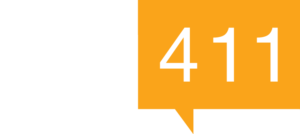The rise of AI in hiring has changed the recruitment process as we know it. With each job opening inviting approximately 250 applicants, the screening process seemed never-ending—until now. Now that AI is in the picture, HR leaders are taking full advantage of its benefits. A recent survey from Workable reveals that not only did over 60% of respondents use AI in the hiring process but 89% also claimed that AI sped up the hiring process. With the time saved, HR teams can bring more resources into other crucial aspects of the company, such as onboarding or employee engagement.
But AI isn’t the golden solution.
The Hidden Dangers of Biased AI Screening
AI learns from the information, but unfortunately, not all the information is free from bias. If AI has bias integrated into its working knowledge, the applicants on the receiving end are likely to feel the ramifications, and companies will have to face the consequences of the discriminatory behavior, even if it’s unintentional.
In fact, some already have.
Just last year, the U.S. Equal Employment Opportunity Commission (EEOC) settled a lawsuit with iTutorGroup due to evidence suggesting the recruitment software was rejecting older applicants. While over 200 qualified applicants of older ages were rejected, red flags were raised when one rejected applicant resubmitted their application with a younger birthdate, which led to an interview. The result of the lawsuit required iTutorGroup to pay $365,000 to all unfairly rejected applicants.
More recently, a new discrimination lawsuit has been filed against Workday, a commonly-used “agent” for multiple companies’ hiring and recruitment solutions. After applying for more than 100 jobs through Workday, which all led to rejections, Derek Mobley filed the lawsuit citing race, age, and disability discrimination. Even though Workday is not the employer in this scenario, the judge ruled that Workday can be held accountable for acting as an “agent” for employers. The Workday case is still new, but they risk a similar fate as iTutorGroup’s settlement orders.
These cases spotlight the increasing legal risks of relying on biased AI in hiring and recruitment, where unchecked systems can lead to serious discrimination issues. With lawsuits like those against iTutorGroup and Workday making headlines, it’s clear that businesses must act swiftly to ensure their AI tools promote fairness. Ignoring this growing problem could not only result in hefty fines but also tarnish a company’s reputation for years to come.
The Human Cost of AI-Led Screening
AI doesn’t just bring risk to resume screening; the interview process is affected too.
Research reveals that most candidates going through an AI-facilitated interview experience varying degrees of “depersonalization, confusion, and self-devaluation.” The pressure of needing to impress the AI persona creates extra discomfort for the interviewee, especially since this requires them to push out their natural behavior for what they think will be rated well by the program.
“Participants described the adoption of these heavily unnatural and inhuman behaviors as ‘becoming robotic’. At the same time, a demand to ‘act naturally’ in an AI-led interview setting felt anything but natural.”
— Automated Job Interviews and The Implications for Young Jobseekers
As candidates are pushed to adopt unnatural behaviors, their inauthenticity can negatively impact their evaluation. This is especially the case as the focus then shifts from genuine skills and personality traits to mechanical responses aimed at pleasing the system. The result? Potentially, a distorted the hiring process.
Striking the Balance Between Efficiency and Fairness
So, what does this mean for HR in recruiting?
Despite its flaws, AI in hiring and recruitment has proven to be a valuable strategy in helping HR professionals manage large volumes of applications and streamline the hiring process. However, it’s essential to approach its implementation thoughtfully and focus on mitigating potential biases embedded in algorithms. By actively working to eliminate these biases and combining AI’s efficiency with human oversight, HR teams can leverage AI’s benefits while ensuring a fairer and more inclusive recruitment process. Ultimately, this balance allows HR professionals to save time, make more informed decisions, and enhance their focus on higher-value tasks like employee development and engagement.






